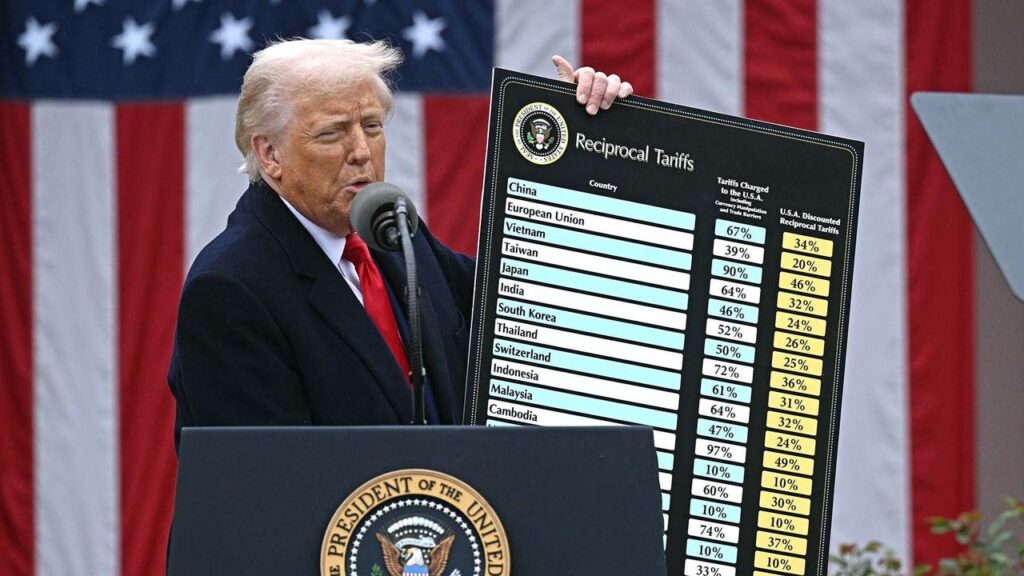
On April 2, 2025, President Donald Trump announced a comprehensive tariff strategy, declaring the day as “Liberation Day” and framing the initiative as a “Declaration of Economic Independence.” This policy introduces a universal 10% tariff on all U.S. imports, with significantly higher rates for specific countries based on perceived unfair trade practices. The administration aims to bolster domestic industries and address trade imbalances through this approach.
Details of the Tariff Announcement
The tariff structure consists of two main components:
1. Universal Tariff
A baseline 10% tariff on imports from all countries, effective April 5, 2025.
2. Reciprocal Tariffs
Higher, country-specific tariffs targeting nations with which the U.S. has significant trade deficits or that have been identified as engaging in unfair trade practices.
For instance:
• European Union: 20%
• Japan: 24%
• South Korea: 25%
• Vietnam: 46%
• Cambodia: 49%
These reciprocal tariffs are set to take effect on April 9, 2025.
Global Implications
The introduction of these tariffs is poised to have far-reaching consequences for the global economy:
• Economic Uncertainty
The European Commission President, Ursula von der Leyen, expressed concern that the tariffs could exacerbate global economic instability, stating that “uncertainty will spiral and trigger the rise of further protectionism.”
• Inflationary Pressures
Economists warn that increased tariffs may lead to higher prices for consumers worldwide, as import costs rise and supply chains are disrupted.
• Potential Retaliation
Affected countries may respond with their own tariffs, potentially leading to a global trade war that could hinder international commerce and economic growth.
Implications for the African Continent
African nations are likely to experience distinct impacts from the U.S. tariff policy:
• South Africa
With a 30% tariff imposed on its exports to the U.S., South Africa’s trade dynamics could be significantly affected, potentially reducing its export competitiveness.
• Other African Countries
While specific tariffs for many African nations were not detailed, the universal 10% tariff will apply, potentially impacting exports of key commodities and manufactured goods to the U.S.
• Trade Diversification
African countries may seek to diversify their trade partnerships, strengthening intra-African trade and exploring new markets to mitigate reliance on U.S. trade.
• Economic Growth
The tariffs could affect sectors such as agriculture and textiles, which are vital for employment and economic development in many African nations.
President Trump’s “Liberation Day” tariffs represent a significant shift in U.S. trade policy, emphasizing economic nationalism. While intended to bolster domestic industries, these measures carry substantial risks of global economic disruption and may prompt retaliatory actions from trading partners.
For the African continent, the tariffs present challenges that necessitate strategic responses to safeguard economic interests and promote sustainable growth.